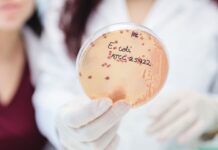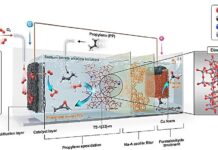Lise Barnéoud’s Hidden Guests: Migrating Cells and How the New Science of Microchimerism is Redefining Human Identity, translated by Bronwyn Haslam, introduces a groundbreaking field of science that challenges our understanding of what it means to be human. The book explores the surprising reality that we aren’t simply composed of our own cells, but harbor fragments of others – a phenomenon known as microchimerism – and the profound implications this has for medicine, heredity, and even our sense of self.
What is Microchimerism?
The core concept of microchimerism is that during pregnancy, cells cross the placenta, embedding themselves within the mother’s body. This means that even children conceived through donor eggs, as the reviewer notes, carry traces of their biological parents. Crucially, the exchange isn’t one-way. Maternal cells, and even those passed down through generations (such as from a mother to her daughter, and then to grandchildren), can also find their way into offspring. This multigenerational cellular exchange can create a truly remarkable interconnectedness within families. The book’s title Hidden Guests aptly describes the quiet presence of these cells, previously unknown and largely unacknowledged.
A Serendipitous Discovery and Shifting Interpretations
Barnéoud’s book meticulously traces the discovery of microchimerism and highlights how its interpretation has been shaped by cultural and political forces. Initially, the presence of foreign cells within the body was often viewed with suspicion, potentially associated with disease. However, scientific research has revealed a far more complex and nuanced picture. The book details the researchers’ journeys, including their initial mistakes, moments of doubt, and ultimately, breakthrough discoveries. The field’s evolution demonstrates how scientific understanding isn’s a linear progression, but rather a process of continuous refinement and adaptation.
Microchimerism: A Double-Edged Sword?
The book presents a balanced perspective on the potential benefits and drawbacks of microchimerism. It emphasizes that these cells aren’t inherently harmful; in fact, they appear to play a role in tissue repair, fighting off tumors, and supporting the body’s natural processes. However, they are also implicated in the development of autoimmune conditions, adding a layer of complexity to our understanding of disease. Barnéoud tackles more emotionally charged aspects of the topic with sensitivity, particularly the enduring presence of cells from miscarried or aborted fetuses within a mother’s body, often for decades. This highlights the long-lasting physiological impact of pregnancy, regardless of its outcome.
Genetic Inheritance and Extraordinary Biological Mysteries
Hidden Guests vividly illustrates how microchimerism complicates traditional understandings of genetic inheritance. The book details fascinating case studies that challenge the long-held assumption of “one individual, one genome.” These include:
- A woman who shares genetic material with only one out of three of her sons.
- A woman with hepatitis C whose liver contains cells genetically matching two previous partners, likely from decades-old terminated pregnancies.
- An Olympic cyclist attempting to attribute an unusual blood type mix to a “vanishing twin” – a fraternal twin whose DNA merges with another in the womb.
These compelling narratives underscore the extraordinary biological mysteries that arise when cellular exchange blurs the lines of heredity.
Clarity and Engaging Explanation
Barnéoud’s background as a journalist shines through in her writing style. She employs helpful metaphors and analogies to explain complex scientific concepts to a broad audience. Comparing microchimeric cells to “stars from other galaxies, bearing molecular signatures other than our own” provides a striking visual. And her analogy of blaming firefighters for starting fires when assessing the role of microchimeric cells in tumors highlights the dangers of drawing premature conclusions.
Beyond the Family Tree?
The book ventures into even more surprising territory, suggesting the possibility that cells from a partner’s seminal fluid might migrate into the woman’s blood and lymphatic vessels, embedding themselves within the brain and body – much like donor cells in organ transplant recipients. This possibility significantly expands the potential scope of cellular exchange and its impact on individuals.
A Profound Redefinition of Human Identity
Hidden Guests ultimately argues that microchimerism calls for a re-evaluation of what it means to be an individual. It dismantles the traditional equation of “one individual, one genome” in a clear and engaging manner. As the reviewer points out, the book is a fascinating and comforting read for mothers who once believed they shared no biology with their children. It demonstrates that we are all, to some degree, a composite of others. Barnéoud’s work invites us to consider how this field will further evolve and the lasting implications for medicine and our understanding of human identity.
































